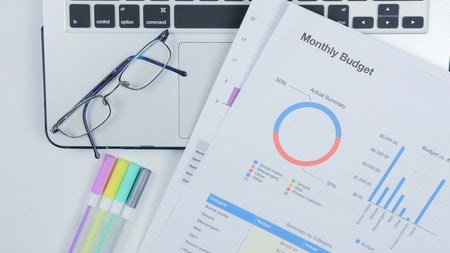Even the word “debt” instils fear. No one wants to be in a position of owing money. Yet reality dictates that in some way we’ll always owe money to someone due to the obvious realisation that we can’t all afford to pay for everything in cash. There will always be cars and houses to pay for.
The assumption is that we should be doing all we can to fight debt and this is correct. Debt it seems is always something to not have; to avoid.
Yet, if we consider debt in a neutral sense we can start to expand our position to consider that there may be aspects to debt that are worth having – despite how counter-intuitive this may seem. This doesn’t mean we must always owe people money. But managing debt can be a good thing as it can give us access to life opportunities that we might otherwise never have.
Cash can’t buy everything
Fewer people – especially young people – are buying houses, these days. Only a very privileged few can buy cars out-of-pocket and be comfortable. The rest of us have to pay off our vehicles in monthly instalments or not own a car at all (which is not always a bad thing). Houses and cars tend to be the two most expensive objects we acquire and continue to throw money at (aside from our children!).
Taking out a loan allows you to have the financial ability to acquire those things you can’t afford right now, like houses and cars. Indeed, some surveys indicate South Africans prefer buying over renting their homes, for example. As rent can be managed by salaries instead of loans, it stands to reason that more loans are being granted for the property market.
By taking out a home loan, we do owe others money, but we are able to get the home we’ve always wanted. This would never be able to happen if loans didn’t exist. Debt is merely a natural occurrence in a world where people don’t earn a million Rands a day.
Good and bad debt
Even before you can get your loan for your new house, the banks require you to have good credit and therefore a good handle on your financial affairs. After all, debt is not something you should avoid; it’s something you should manage.
Indeed, CNN Money agrees:
“avoiding debt at any cost is not smart either if it means depleting your cash reserves for emergencies. The challenge is learning how to judge which debt makes sense and which does not and then wisely managing the money you do borrow.”
And this is where the ideas of good and bad debt arise.
“Good debt includes anything you need but can't afford to pay for up front without wiping out cash reserves or liquidating all your investments. In cases where debt makes sense, only take loans for which you can afford the monthly payments.
“Bad debt includes debt you've taken on for things you don't need and can’t afford (that trip to Bora Bora, for instance). The worst form of debt is credit-card debt, as it usually carries the highest interest rates.”
Thus, in the end, it’s all about managing your finances properly. Debt is inevitable given the nature of the world. The question isn’t how best to avoid it. It’s how best to manage it if you want to live in the home that tugs at your heart strings.


